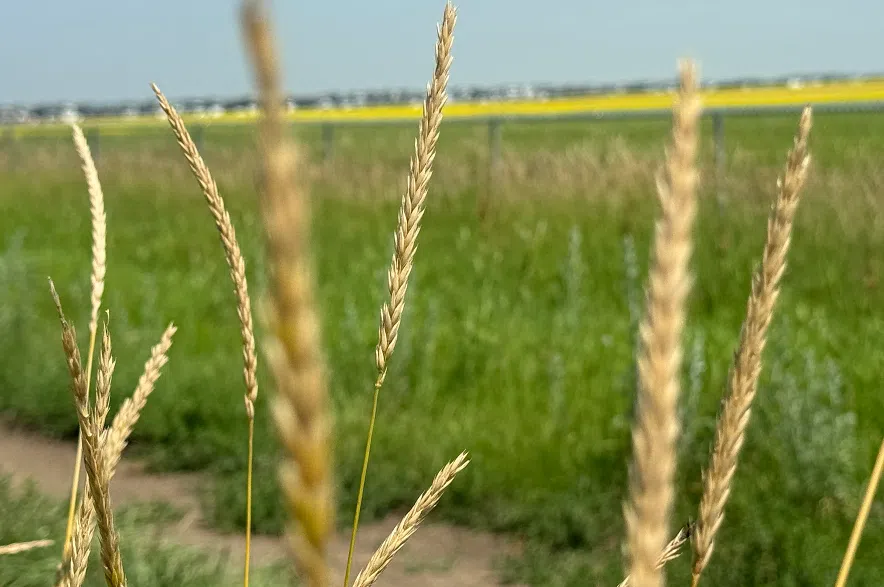U.S. President Donald Trump’s decision to “pause” his proposed tariffs on Canada is good news for farmers in Saskatchewan, but a lot of uncertainty remains.
Late on Monday afternoon, Trump said he’d pause the 25 per cent tariffs until March after Canada announced it would implement a $1.3 billion border plan.
Read More:
- Despite tariff pause, uncertainty hangs over Canadian economy
- Moe calls for ‘de-escalation,’ but supports first round of counter-tariffs
- Ford praises federal border plan ahead of meeting with prime minister, premiers
The plan, announced by Prime Minister Justin Trudeau on Monday, will see Canada reinforce the border with helicopters, technology and personnel, along with increased co-ordination with American partners to stop the cross-border flow of fentanyl.
I just had a good call with President Trump. Canada is implementing our $1.3 billion border plan — reinforcing the border with new choppers, technology and personnel, enhanced coordination with our American partners, and increased resources to stop the flow of fentanyl. Nearly…
— Justin Trudeau (@JustinTrudeau) February 3, 2025
Trudeau said he is appointing a fentanyl czar, and will list drug cartels as terrorists. He also signed a new intelligence directive on organized crime and fentanyl, backing it with a $200 million investment.
Bill Prybylski, president of the Agricultural Producers Association of Saskatchewan, said he’s “relieved that tariffs aren’t coming into place today – but still concerned about what’s going to happen after 30 days.”
While he’s glad to see the tariffs pushed back, Prybylski said there’s still a “whole lot of uncertainty” about what will ultimately happen.
“There’s no clarity yet as to will the tariffs be back, or will our governments be able to negotiate some sort of a deal to avoid them?” he said.
Prybylski said there isn’t much producers can do at the moment except waiting.
“From a farmer’s perspective, there’s not a whole lot we’re going to be able to do in the next 30 days – other than maybe do some some marketing in advance of any price fluctuations due to the tariff,” Prybylski explained.
“But other than that, I guess we’re going to have to be relying on our government to negotiate on our behalf. We can provide as much input as we can as to how we feel the tariffs may affect our farms, but that’s pretty much all we can do for now.”
If the tariffs were to go into place, Prybylski said they would have a big impact on farms throughout the province and the country.
“The biggest concern for us is grain prices. How will they be affected if the buyers in the States are forced to pay an extra 25 per cent tariff? Obviously they’re not going to be willing to pay for the for the commodities that we produce at the same level that we are right now,” he explained.
“Certainly it’s going to effect our grain prices, and then our equipment prices and parts. Everything is made of the steel and transferred back forth across the border. How are the tariffs going to affect equipment and repair prices? All these things just add to the uncertainty.”







